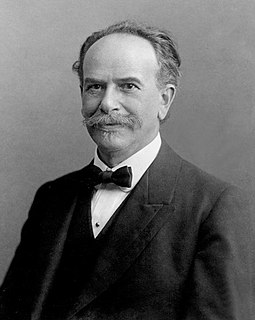
Anthropology is the scientific study of humanity, concerned with human behavior, human biology, cultures and societies, in both the present and past, including past human species. Social anthropology studies patterns of behaviour, while cultural anthropology studies cultural meaning, including norms and values. Linguistic anthropology studies how language influences social life. Biological or physical anthropology studies the biological development of humans. Visual anthropology, which is usually considered to be a part of social anthropology, can mean both ethnographic film as well as the study of "visuals", including art, visual images, cinema etc. Oxford Bibliographies describes visual anthropology as "the anthropological study of the visual and the visual study of the anthropological".

Cultural anthropology is a branch of anthropology focused on the study of cultural variation among humans. It is in contrast to social anthropology, which perceives cultural variation as a subset of a posited anthropological constant. The umbrella term sociocultural anthropology includes both cultural and social anthropology traditions.
Evolutionism is a term used to denote the theory of evolution. Its exact meaning has changed over time as the study of evolution has progressed. In the 19th century, it was used to describe the belief that organisms deliberately improved themselves through progressive inherited change (orthogenesis). The teleological belief went on to include cultural evolution and social evolution. In the 1970s the term Neo-Evolutionism was used to describe the idea "that human beings sought to preserve a familiar style of life unless change was forced on them by factors that were beyond their control".

Franz Uri Boas was a German-born American anthropologist and a pioneer of modern anthropology who has been called the "Father of American Anthropology". His work is associated with the movements known as Historical Particularism and Cultural Relativism.

Biological anthropology, also known as physical anthropology, is a scientific discipline concerned with the biological and behavioral aspects of human beings, their extinct hominin ancestors, and related non-human primates, particularly from an evolutionary perspective. This subfield of anthropology systematically studies human beings from a biological perspective.
Culture theory is the branch of comparative anthropology and semiotics that seeks to define the heuristic concept of culture in operational and/or scientific terms.

Clark David Wissler was an American anthropologist, ethnologist, and archaeologist.
Cross-cultural studies, sometimes called holocultural studies or comparative studies, is a specialization in anthropology and sister sciences that uses field data from many societies to examine the scope of human behavior and test hypotheses about human behavior and culture.

Behavioral modernity is a suite of behavioral and cognitive traits that distinguishes current Homo sapiens from other anatomically modern humans, hominins, and primates. Most scholars agree that modern human behavior can be characterized by abstract thinking, planning depth, symbolic behavior, music and dance, exploitation of large game, and blade technology, among others. Underlying these behaviors and technological innovations are cognitive and cultural foundations that have been documented experimentally and ethnographically by evolutionary and cultural anthropologists. These human universal patterns include cumulative cultural adaptation, social norms, language, and extensive help and cooperation beyond close kin.

Julian Haynes Steward was an American anthropologist best known for his role in developing "the concept and method" of cultural ecology, as well as a scientific theory of culture change.
Japanese values are cultural goals, beliefs and behaviors that are considered important in Japanese culture.
Dual inheritance theory (DIT), also known as gene–culture coevolution or biocultural evolution, was developed in the 1960s through early 1980s to explain how human behavior is a product of two different and interacting evolutionary processes: genetic evolution and cultural evolution. Genes and culture continually interact in a feedback loop, changes in genes can lead to changes in culture which can then influence genetic selection, and vice versa. One of the theory's central claims is that culture evolves partly through a Darwinian selection process, which dual inheritance theorists often describe by analogy to genetic evolution.
Biocultural anthropology can be defined in numerous ways. It is the scientific exploration of the relationships between human biology and culture. "Instead of looking for the underlying biological roots of human behavior, biocultural anthropology attempts to understand how culture affects our biological capacities and limitations."
The following outline is provided as an overview of and topical guide to anthropology:

Culture is an umbrella term which encompasses the social behavior and norms found in human societies, as well as the knowledge, beliefs, arts, laws, customs, capabilities, and habits of the individuals in these groups.

Peter N. Peregrine is an American anthropologist, registered professional archaeologist, and academic. He is well known for his promotion of the use of science in anthropology, and for his popular textbook Anthropology. Peregrine did dissertation research on the evolution of the Mississippian culture of North America, and conducted fieldwork on Bronze Age cities in Syria. He is currently Professor of Anthropology and Museum Studies at Lawrence University and Research Associate of the Human Relations Area Files at Yale University. From 2012 to 2018 he was an External Professor at the Santa Fe Institute.

American anthropology has culture as its central and unifying concept. This most commonly refers to the universal human capacity to classify and encode human experiences symbolically, and to communicate symbolically encoded experiences socially. American anthropology is organized into four fields, each of which plays an important role in research on culture:
- biological anthropology
- linguistic anthropology
- cultural anthropology
- archaeology
Evolutionary psychology has traditionally focused on individual-level behaviors, determined by species-typical psychological adaptations. Considerable work, though, has been done on how these adaptations shape and, ultimately govern, culture. Tooby and Cosmides (1989) argued that the mind consists of many domain-specific psychological adaptations, some of which may constrain what cultural material is learned or taught. As opposed to a domain-general cultural acquisition program, where an individual passively receives culturally-transmitted material from the group, Tooby and Cosmides (1989), among others, argue that: "the psyche evolved to generate adaptive rather than repetitive behavior, and hence critically analyzes the behavior of those surrounding it in highly structured and patterned ways, to be used as a rich source of information out of which to construct a 'private culture' or individually tailored adaptive system; in consequence, this system may or may not mirror the behavior of others in any given respect.".
Cultural evolution is an evolutionary theory of social change. It follows from the definition of culture as "information capable of affecting individuals' behavior that they acquire from other members of their species through teaching, imitation and other forms of social transmission". Cultural evolution is the change of this information over time.
There are two main approaches currently used to analyze archaeological remains from an evolutionary perspective: evolutionary archaeology and behavioral ecology. The former assumes that cultural change observed in the archaeological record can be best explained by the direct action of natural selection and other Darwinian processes on heritable variation in artifacts and behavior. The latter assumes that cultural and behavioral change results from phenotypic adaptations to varying social and ecological environments.









